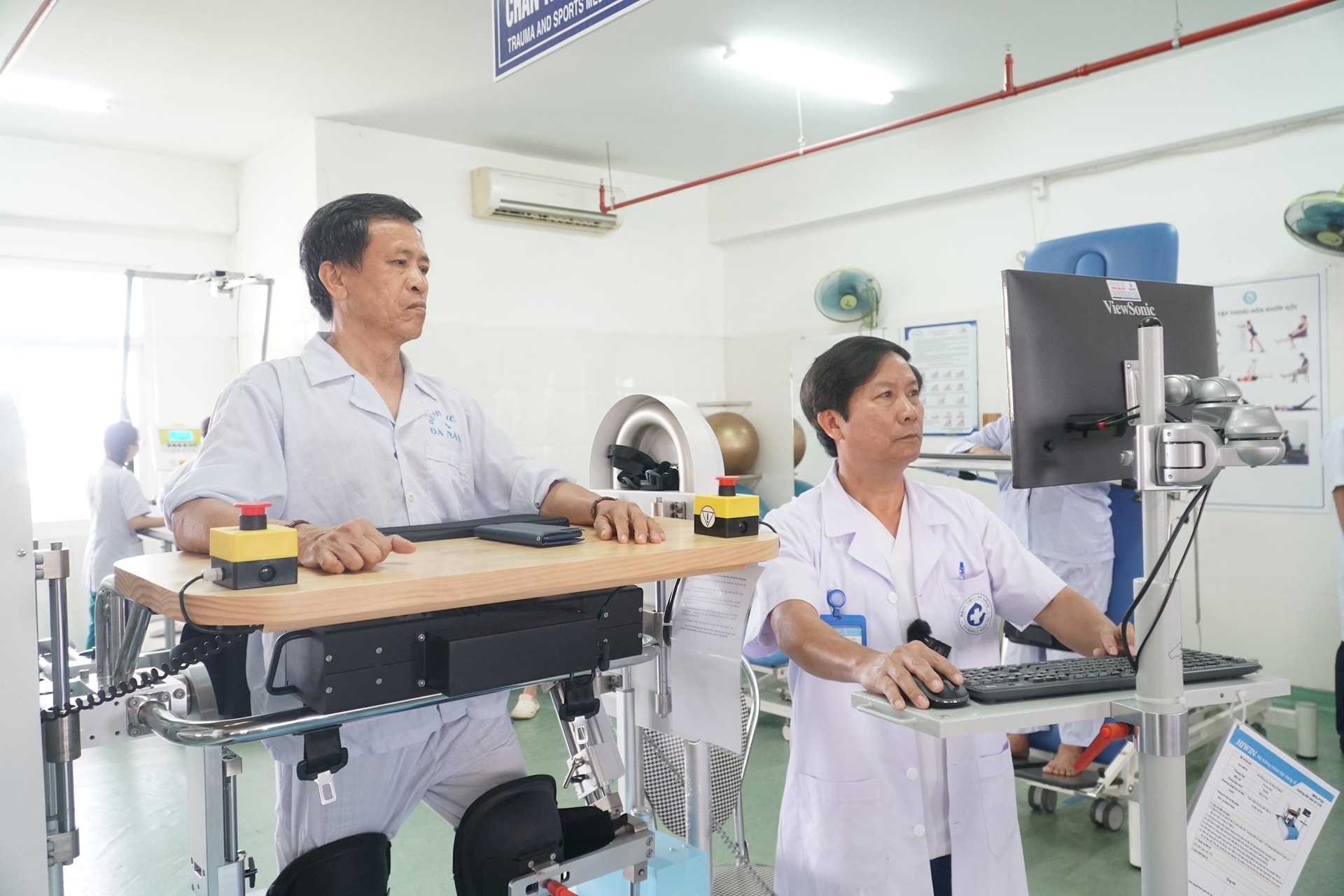DNO - Da Nang’s healthcare sector has gradually affirmed its steady progress in bringing modern science into treatment processes.

The Department of Rehabilitation of the Da Nang C Hospital, for example, has boosted the application of artificial intelligence (AI), virtual reality (VR) and smart robots to create a modern, vivid and effective treatment space.
With the 3D-sensor Virtual Reality Rehabilitation System (VRRS EVO), patients have access to a very vivid and exciting therapy sessions, which helps them quickly improve movement and cognitive perception as well.
In addition to virtual reality technology, the Da Nang C Hospital is equipped with a series of high-tech devices such as the MRG-P100 gait rehabilitation robot, and the Gamma system for balance assessment and training.
Among them, the MRG-P100 robot marks a significant step in supporting patients in standing up and walking safely. This robot provides three-point support at the pelvis, abdomen and knees, creating a sense of stability for patients with spinal cord injuries, strokes or neuromuscular diseases.
Notably, the system can be programmed for three functional walking patterns, adjustable to each patient’s physical condition.
Meanwhile, the Gamma balance training system with interactive games helps doctors evaluate the patient's balance disorder in detail. Data collected from training sessions is synthesized and analyzed, allowing doctors and technicians to develop treatment plans tailored to each individual.
According to Dr. Bui Van Hoi, Head of the Department of Rehabilitation, AI is gradually being deeply integrated into rehabilitation processes, mainly through the combination with modern medical equipment.
For instance, AI works with rehabilitation robots to identify the limitations in a patient's mobility, thereby supporting more accurate and effective exercises. AI can also connect to virtual reality systems, and receive and analyze neural signals from the cerebral cortex, thereby adjusting therapeutic scenarios to target specific functional impairments.
AI is also being used to support diagnosis, treatment planning, prognosis, and therapeutic interventions.
Patients can even use smartphones with specialized software to continue rehabilitation at home. Doctors are able to remotely monitor and adjust appropriate exercises.
“The application of technology is not just a trend but an essential need in modern healthcare. In the coming time, the hospital will continue to invest in cutting-edge equipment and promote human resource training to master new equipment, while enhancing scientific research and cooperation with domestic and foreign units” Dr. Hoi emphasized.
The hospital’s goal is to help patients in Da Nang quickly and effectively access the most advanced medical equipment, especially in the rapidly evolving era of AI and digital transformation, he shared.